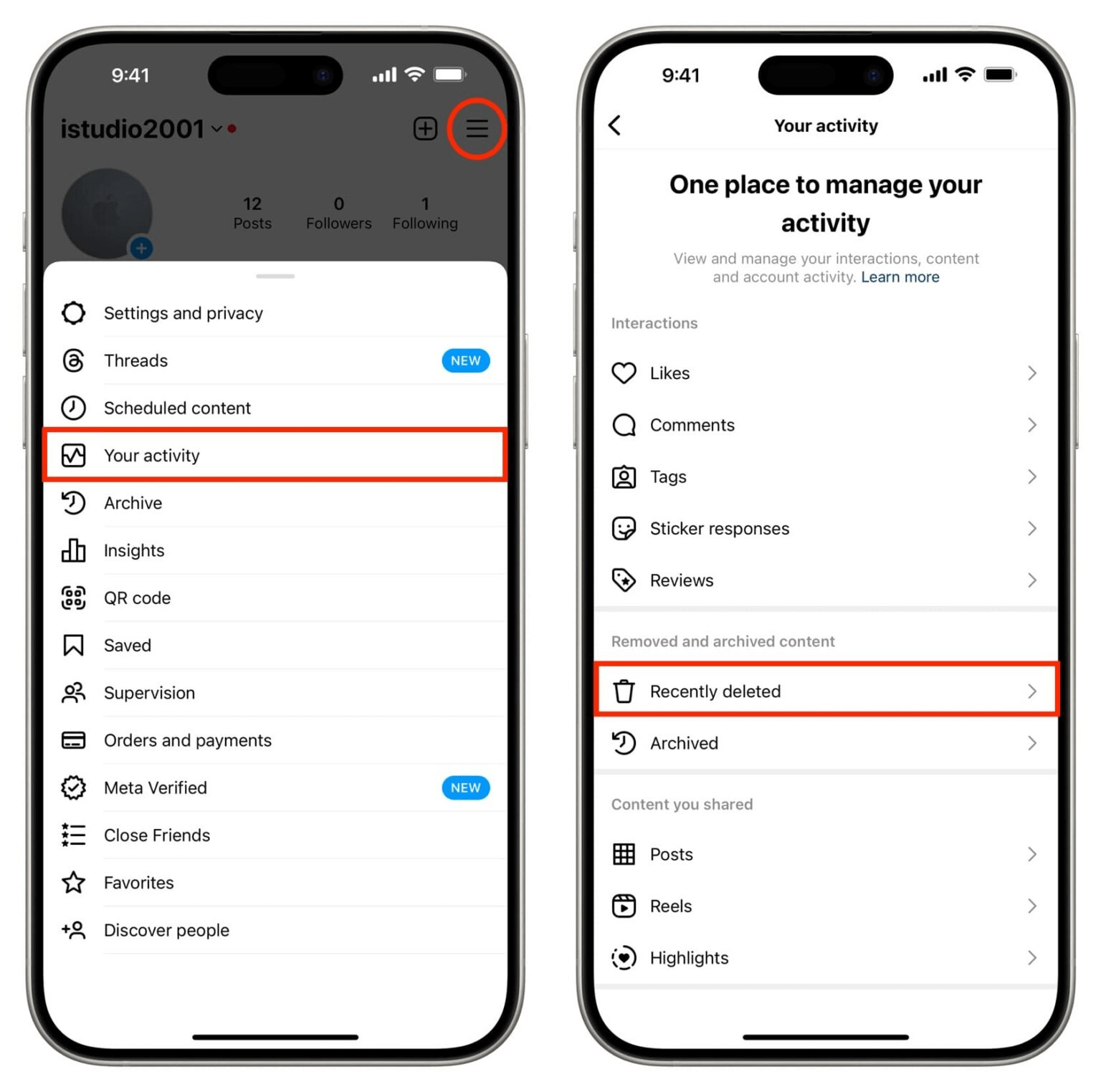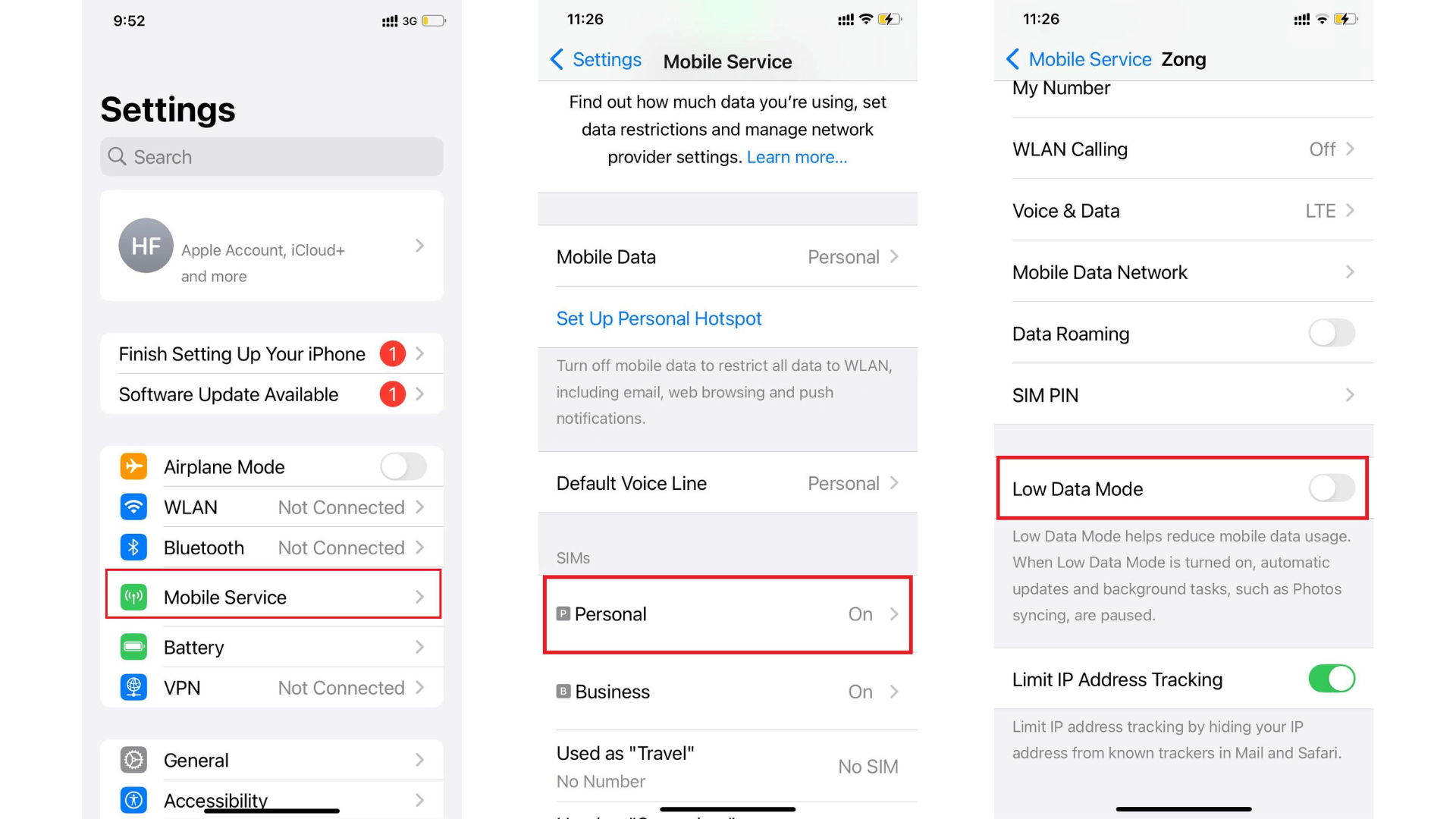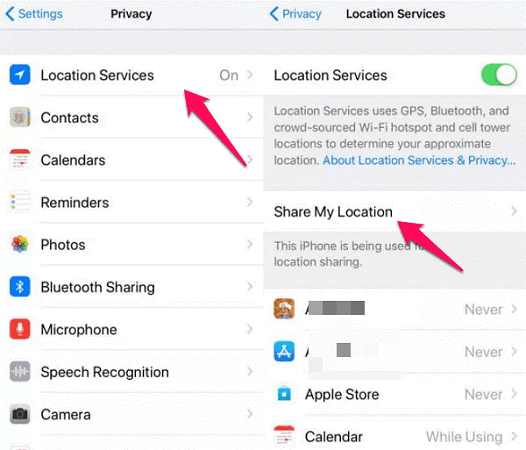FamiGuard Support: Monitor Devices with Others' Permission.
If you've ever felt like your mother's behavior is more about control than care, or you are those parents who consider that if you are too controlling or not, you're not alone. Understanding the signs of a controlling mother is the first step toward addressing these behaviors and fostering healthier family dynamics. In this article, I'll guide you through the signs of a controlling mother, the effects of this behavior on children, why some mothers act this way, and practical advice on coping with and addressing these issues.
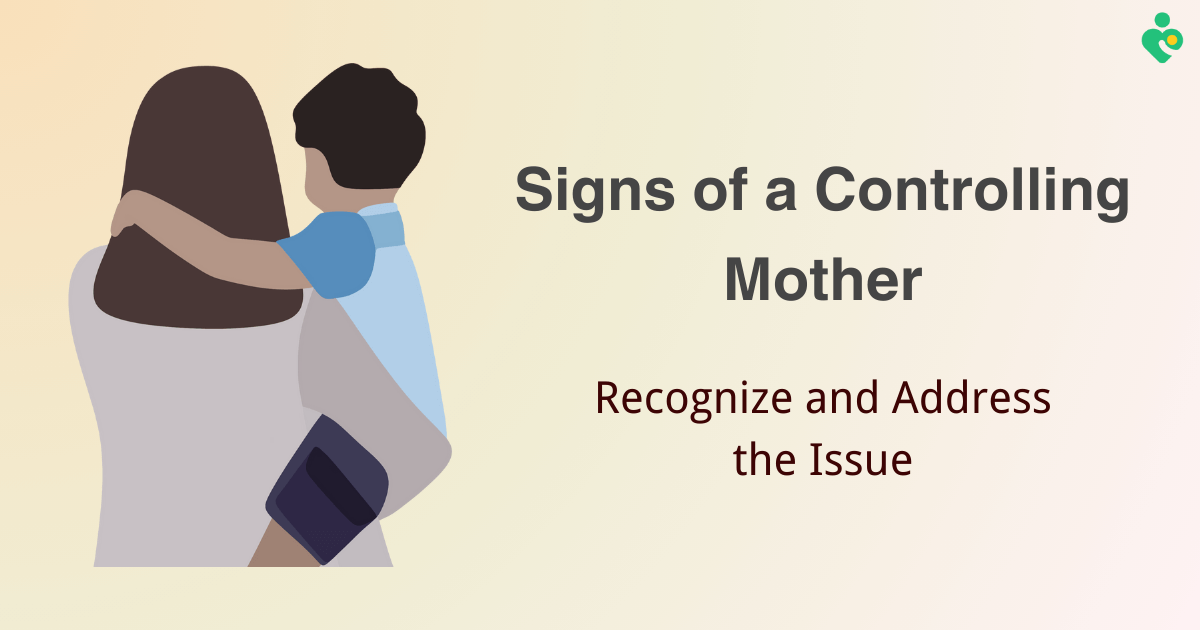
Table of Contents
Part 1: Signs of a Controlling Mother
Part 2: What Effects Do Controlling Parents Have Upon Their Children?
Part 3: Why Is My Mom So Controlling?
Part 4: How to Deal with a Controlling Mother
Part 5: Parental Controls: An Invasion of Privacy?
Part 6: FAQs
Part 1: Signs of a Controlling Mother
Identifying controlling behavior can be challenging, especially when it comes from someone as close as a mother. Here are some clear signs that your mother might be overly controlling, along with detailed explanations and examples:
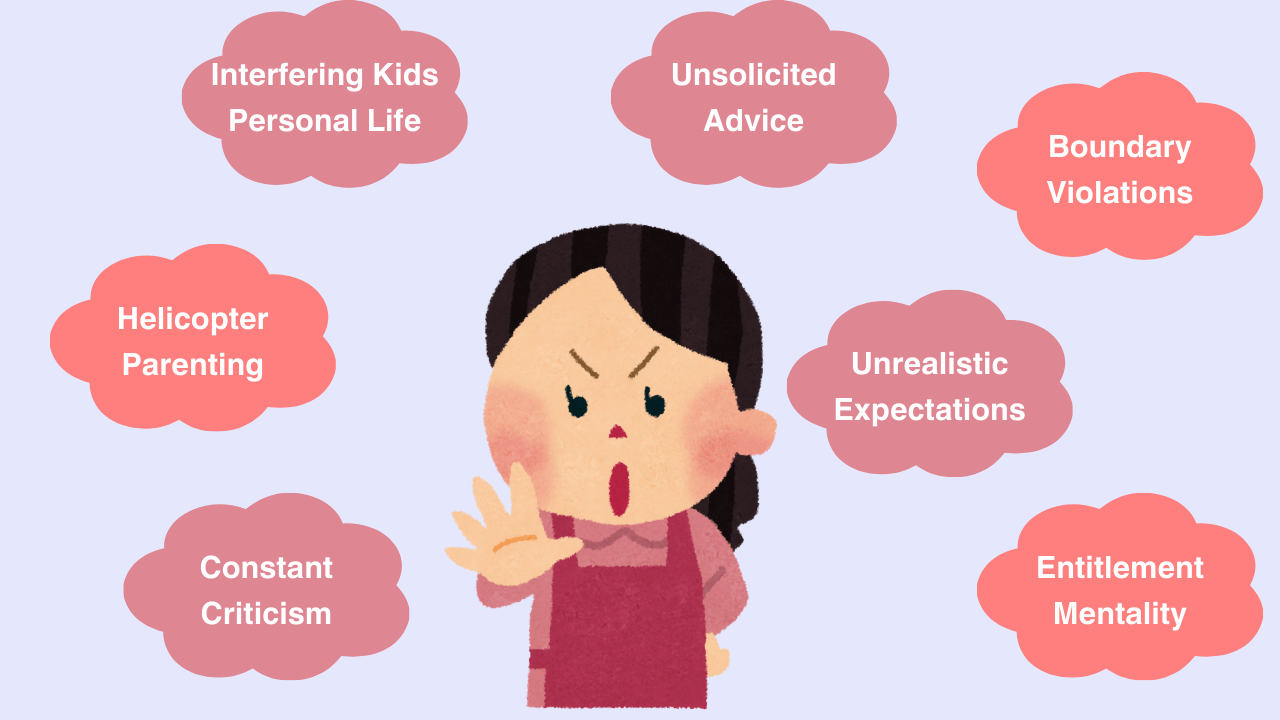
1. Constant Criticism
A controlling mother often criticizes your choices, appearance, and actions. This might look like her always pointing out flaws in what you wear, how you talk, or the decisions you make, no matter how trivial they seem. For example, if you decide to wear a bright-colored shirt, she might say, "That color looks awful on you. Why can't you dress properly?" Over time, this constant criticism can erode your self-esteem and make you second-guess your every decision.
2. Micromanagement
She wants to know every detail of your life and often dictates what you should do. This can range from demanding to see your homework assignments to telling you exactly how to organize your room or spend your free time. For instance, if you have plans with friends, she might insist on knowing the exact itinerary and then suggest, or even demand, changes based on her preferences. Micromanagement like this can make you feel like you have no control over your own life.
3. Invasion of Privacy
A controlling mother may read your messages, listen to your calls, or go through your personal belongings without permission. You might find her checking your phone when you're not around, listening to conversations, or even reading your diary. This lack of respect for your privacy can make you feel violated and distrusted, leading to a lack of confidence in your ability to handle your own affairs.
4. Guilt Trips
She uses guilt to manipulate your decisions or actions. Guilt trips can be subtle or overt, often involving phrases like, "After all I've done for you, this is how you repay me?" or "If you really loved me, you would do this." For example, if you want to spend the weekend with friends, she might say, "Oh, I guess I'll just stay home alone, even though I've been looking forward to spending time with you." This manipulative tactic can make you feel responsible for her happiness and guilty for pursuing your own interests.
5. Lack of Boundaries
A controlling mother disregards your personal space and boundaries. This might include entering your room without knocking, taking over your personal projects, or interrupting your time with friends. For example, she might come into your room to "clean up" without asking, even if you've told her you'd prefer to handle it yourself. Such behavior shows a lack of respect for your autonomy and can make you feel like you have no safe space to call your own.
6. Conditional Love
She makes you feel like her love and approval are conditional on following her rules. This can manifest as her withdrawing affection or approval when you don't do what she wants. For instance, if you choose a career path she doesn't approve of, she might say, "I can't support you if you're going to make such foolish decisions." Conditional love creates a fear of rejection and can make you feel that your worth is tied to compliance rather than who you are.
7. Overprotection
She excessively monitors your activities to keep you "safe" but stifles your independence. This can involve constant check-ins, not allowing you to go places alone, or making decisions for you under the guise of protecting you. For example, she might insist on driving you to and from every event, even if it's a simple outing with friends, and then interrogate you about every detail. While protection is a natural part of parenting, overprotection can prevent you from developing the confidence and skills needed to navigate the world independently.
8. Control Over Relationships
She tries to control who you can and cannot be friends with or date. This might look like her disapproving of your friends without valid reasons, sabotaging your relationships, or dictating who you spend time with. For instance, she might say, "I don't like that friend of yours; you should stop hanging out with them," without giving you a reasonable explanation. Such control over your social life can lead to isolation and difficulty forming healthy, independent relationships.
9. Emotional Manipulation
She uses emotional blackmail to get her way. This can involve playing the victim, exaggerating her feelings, or using your emotions against you. For example, she might cry and say, "You're breaking my heart by doing this," even over minor disagreements. Emotional manipulation like this can make you feel responsible for her emotions and force you into compliance to avoid conflict and guilt.
10. Dependency Encouragement
She discourages your independence, making you feel you cannot succeed without her. This might involve undermining your confidence, handling tasks you could do yourself, or discouraging you from making your own decisions. For example, if you express a desire to move out or take on a challenging project, she might say, "You're not ready for that; you need me to help you." This behavior keeps you dependent on her and stifles your growth and self-reliance.
Part 2: What Effects Do Controlling Parents Have Upon Their Children?
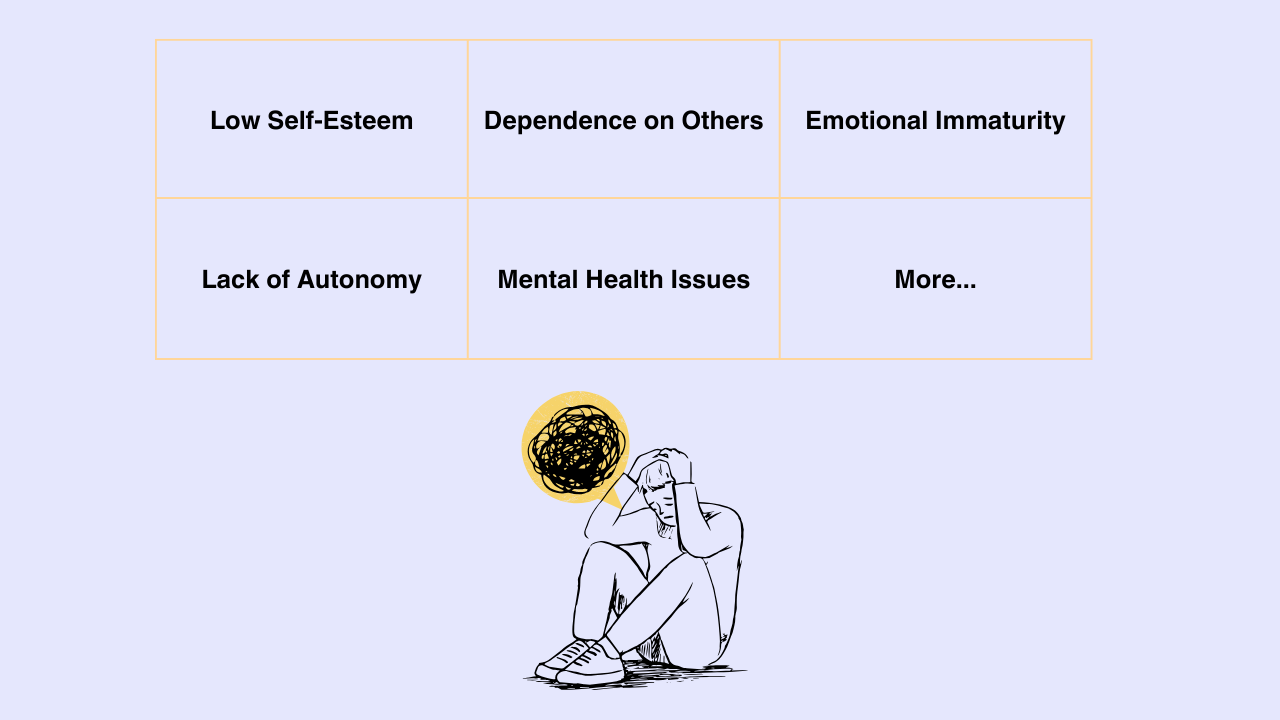
The impact of controlling parents can be profound and long-lasting. Here's how this behavior might affect you:
Low Self-Esteem
Constant criticism and lack of trust can lead to self-doubt and low self-worth. When you're repeatedly told you're not good enough, you start believing it, which can affect your confidence in all areas of life.
Anxiety and Depression
The pressure to meet unrealistic expectations and the fear of constant judgment can result in mental health issues like anxiety and depression. The feeling of always walking on eggshells can be mentally exhausting and detrimental to your overall well-being.
Lack of Independence
Difficulty making decisions and being self-reliant due to always being told what to do can hinder your ability to function independently. You might find yourself second-guessing your choices and relying on others for validation and direction.
Trust Issues
Struggling to trust others due to the lack of trust experienced at home can affect your relationships. If you grow up with someone constantly invading your privacy, it becomes hard to believe that others won't do the same.
Rebellion or Compliance
Extreme control can lead to either rebellious behavior, where you actively resist authority, or excessive compliance, where you suppress your true self to avoid conflict. Neither extreme is healthy and can lead to further emotional and psychological issues.
Poor Relationship Skills
Difficulty forming and maintaining healthy relationships outside the family can stem from not having a model for healthy interactions. You might struggle with setting boundaries or trusting others, which can impact friendships and romantic relationships.
Fear of Failure
Being overly cautious and fearful of making mistakes due to constant scrutiny can paralyze your growth. The pressure to always be perfect can prevent you from taking risks and trying new things, which are essential components of personal development.
Part 3: Why Is My Mom So Controlling?
Understanding the root causes of controlling behavior can help in dealing with it more effectively. Here are some possible reasons why your mom might be controlling:
Fear and Anxiety
She may have her own fears and anxieties about your safety and future. Her need to control might stem from a desire to protect you from harm, but it manifests in a way that stifles your independence.
Past Trauma
Her own upbringing might have been controlling or traumatic, influencing her behavior. If she grew up in an environment where control was equated with love and care, she might repeat the same patterns with you.
Perfectionism
A desire for everything to be perfect, including you, can drive controlling behavior. If she sets unrealistically high standards for herself, she might project the same onto you, leading to constant pressure and criticism.
Insecurity
Her need to control might stem from her own insecurities and lack of self-confidence. She might feel that by controlling you, she can compensate for her perceived inadequacies and fears.
Misguided Love
She may believe that controlling you is a way of protecting and loving you. Her intentions might be good, but the execution is harmful and counterproductive, leading to strained relationships.
Cultural or Generational Differences
Different cultural or generational norms about parenting and control can also play a role. What might be seen as controlling in one culture could be viewed as normal parental behavior in another, leading to misunderstandings and conflicts.
Part 4: How to Deal with a Controlling Mother
Dealing with a controlling mother can be difficult, but there are ways to manage and improve the situation:
Set Boundaries
Clearly define and communicate your boundaries. Be firm and consistent. For example, let her know that you need privacy in your room and that entering without knocking is not acceptable.
Communicate Openly
Have honest conversations about how her behavior affects you. Use "I" statements to express your feelings. For instance, "I feel overwhelmed when you criticize my choices because it makes me doubt myself."
Seek Support
Talk to a trusted friend, family member, or therapist about your experiences. Having someone to confide in can provide emotional relief and practical advice on handling the situation.
Develop Independence
Take small steps to become more independent and make your own decisions. This could involve taking up a part-time job, handling your own finances, or making personal choices without seeking approval.
Stay Calm
Avoid arguing and stay calm during confrontations. Walk away if necessary. Keeping your cool can prevent the situation from escalating and give you the space to think clearly.
Educate Yourself
Learn more about controlling behaviors and how to handle them effectively. Books, articles, and therapy can provide valuable insights and strategies for dealing with a controlling parent.
Therapy
Consider family therapy to address underlying issues and improve communication. A professional can help mediate conversations and provide strategies to improve your relationship dynamics.
Part 5: Parental Controls: An Invasion of Privacy?
As parents, it's natural to want to protect your children, but there's a fine line between being protective and being overcontrolling. Striking a balance between ensuring safety and respecting privacy is crucial for a healthy parent-child relationship.
The Balance Between Parental Control and Overcontrolling
- Parental Control: Setting reasonable boundaries and monitoring online activities to protect children from potential dangers such as cyberbullying, inappropriate content, and online predators.
- Overcontrolling: Excessive monitoring and restriction of personal freedom, leading to feelings of mistrust and rebellion. This includes reading all messages, dictating every decision, and not allowing any personal space.
Finding the right balance involves open communication and mutual respect. It's about guiding and supporting your children while allowing them the freedom to grow and learn from their experiences.
FamiGuard Pro: A Balanced Approach
FamiGuard Pro can help parents maintain this balance. It offers features that allow you to monitor your child's online activities and ensure their safety without being overly invasive.
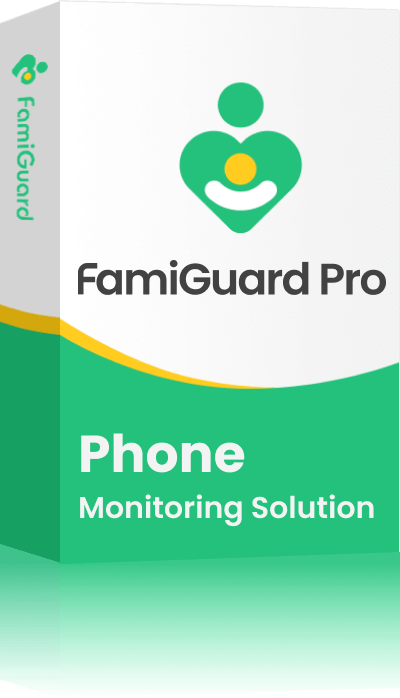
An Array of Amazing Features
- Customizable Alerts: Receive notifications about concerning activities without constantly monitoringing on your child.
- Screen Time Management: Set reasonable limits on device usage to encourage healthy habits.
- Content Filtering: Block inappropriate content while allowing access to educational and age-appropriate material.
- Location Tracking: Ensure your child's safety by knowing their whereabouts without intruding on their social life.
By using tools like FamiGuard Pro thoughtfully, you can protect your child and respect their privacy, fostering trust and open communication.
FAQs
1. How can I set boundaries with a controlling mother?
Clearly define your boundaries, communicate them firmly, and be consistent in enforcing them.
2. Is it possible to change a controlling parent's behavior?
Yes, through open communication, therapy, and consistent boundary-setting, it's possible to improve the relationship.
Conclusion
Understanding and addressing the signs of a controlling mother is crucial for your mental and emotional well-being. By recognizing these behaviors, understanding their impact, and taking steps to manage them, you can foster a healthier relationship and greater independence. Remember, seeking support and setting boundaries is key in dealing with controlling behaviors. Stay strong and take control of your own life.
By Tata Davis
An excellent content writer who is professional in software and app technology and skilled in blogging on internet for more than 5 years.



































